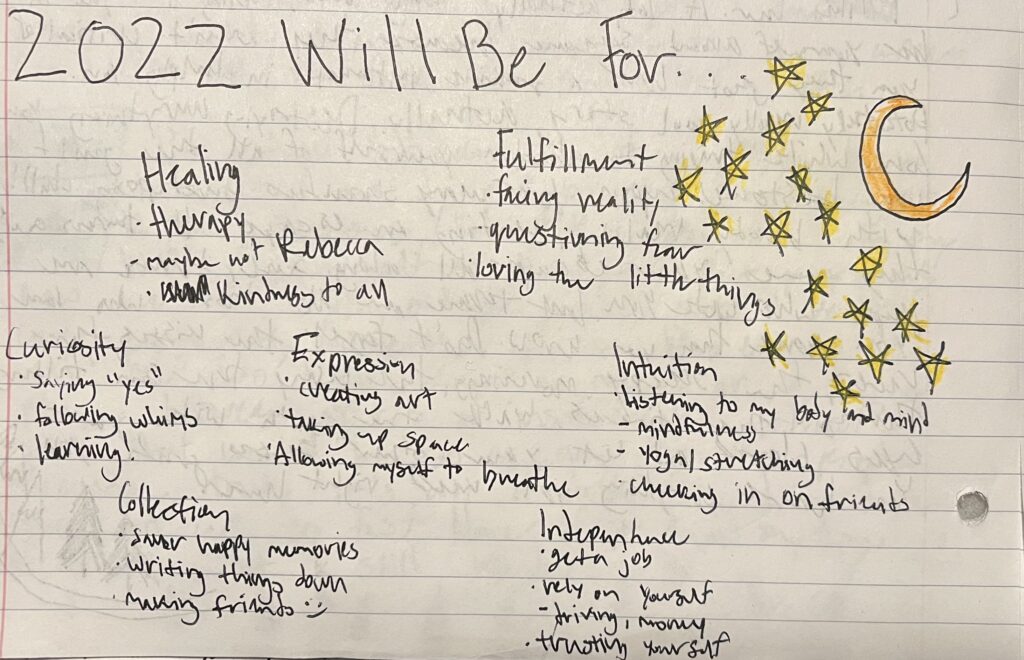I’ve never successfully completed a New Year’s resolution. It seems that no matter how hard I try, I never become motivated enough to implement a change from January to December. I’ve pledged to drink two liters of water per day, to learn to play chess, to do yoga every day, and a myriad of other goals that always seem to fizzle out by February.
No matter what, my goals always seemed to center around improving my imperfections by taking steps toward reaching my fullest potential. And although I lacked the motivation to achieve this “perfect self” I had dreamed up, I cared enormously about being perceived as something “better” than who I thought I was. So why couldn’t I force myself to change? Was it because I didn’t have the willpower? Or a sign that I am unsalvageable? As I later realized, these thoughts were deeply rooted in my natural instinct to doubt my own abilities, a tendency that New Year’s resolution culture only exacerbated.

Every year, I watched people across my friend group and the internet work toward goals they’d set for themselves. It felt like I was falling behind, unable to diagnose and subsequently destroy the imperfections in my personality. So I made the one change that could’ve assuaged this chronic cycle of self-loathing: I didn’t make a resolution. Suddenly, the doubt that perpetuated January dissolved. I carried on with my life, praying that change would come to me naturally.
Of course, change is innate to adolescence and the passage of time. But even more so, I found that legitimate alterations to my lifestyle and self were able to happen when I cared enough to bring about change myself, a skill that was already integrated into my life. Because we set goals for ourselves every day, whether they’re about the amount of work we want to do during our off-period or who we want to be friends with in our classes. But the important thing is that these changes are driven by a desire to be better, not the fear that you are flawed.
Last year, I decided to dip my toes in the New Year’s resolution pond by setting some intentions at the beginning of the year. It felt like a slightly less intense way to keep myself in line with the things I wanted to achieve outside of school. I promptly forgot about them, only remembering to reread the hastily written journal entry at the end of last year.
And frankly, I thought that these intentions were stupid. They weren’t aimed at any specific goal so there was no way to gauge whether or not I’d achieved them. They also felt so disconnected from what I actually care about; “I intend to be more independent” isn’t something I deeply wanted then, and I don’t think I’ve achieved that in any meaningful capacity a year later. Overall, the exercise was forced and reminded me of the feeling that I was incapable of working on myself.
Overall, I think it’s important to set goals for yourself within specific contexts (such as in therapy, a hard class, or socially) but to construct nebulous expectations that you have no real chance of meeting sets you up for disappointment. And to have the best year that you can, you have to be willing to accept yourself for everything you are, even if that means facing your insecurities head-on.
With the help of friends and family, we can all strive to be the best versions of ourselves, so long as we are reminded that there is no standard for what that looks like. You do not have to be the happiest person you know to be content with the life you are leading. Trust your own ability to grow over time, because forcing change might just be the obstacle in your way.
